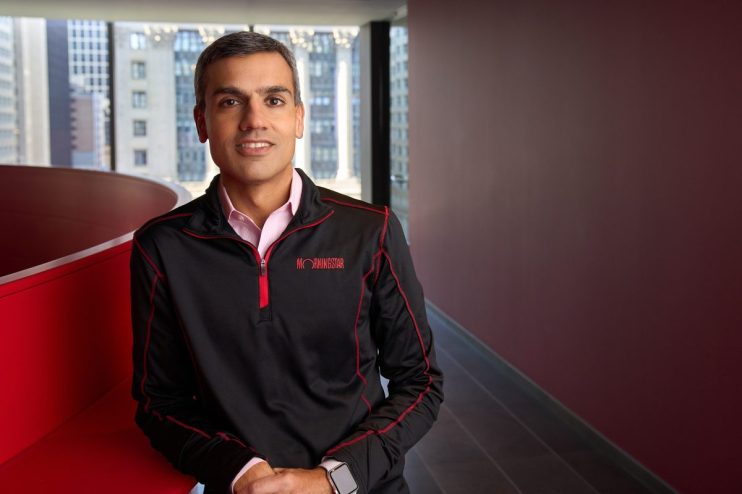From analyst to boss: Morningstar chief talks AI, sustainability and what elections could mean for equities

Morningstar CEO Kunal Kapoor has worked his entire life at the firm, joining as a data analyst in 1997 when the firm had less than $50m in annual revenue.
Now, he sits at the head of a company which has revenue in the billions.
“I’ve been at Morningstar for more than 25 years, but there’s probably been more than 25 Morningstars in that time because so much has changed,” Kapoor said. speaking to City A.M.
He added: “Morningstar allowed me to take my research skills and apply them in running a business, and as our business grew, I’ve had to grow.”
Morningstar is primarily focused on providing data and research on funds and stocks, but also runs its own investment management division.
The Chicago-based business is eager to carry on expanding into new areas, and the prime target in recent months has been artificial intelligence.
Last year, the firm launched an AI chatbot called ‘Mo’, meant to use data from Morningstar to answer questions for investor research.
I witnessed the robot in action at the firm’s investment conference last May, and while the slightly uncanny valley appearance was somewhat offputting, the tech behind it seemed genuinely impressive and provided strong answers to Kapoor’s questions onstage.
“We’ve continued to develop Mo, but underlying Mo is what we call an intelligence engine, and we’re trying all different types of use case” Kapoor said.
He explained that Morningstar’s aim with the introduction of AI everywhere was to “remove friction,” whether that be its employees searching for health benefits on the firm’s intranet, or a client customising their portfolio.
“There’s a lot of pie-in-the-sky thinking about AI, which is obviously great,” he added but argued the real benefit of the technology was getting rid of busywork.
One of the other biggest trends in investment right now is the decline in popularity of sustainable investing, which saw a boom throughout the pandemic.
Morningstar owns Sustainalytics, one of the largest environmental, social and governance (ESG) data providers, and used the popularity of the trend to capitalise on providing a wide range of data on sustainable funds.
While the popularity of ESG has definitely taken a downturn, Kapoor argued that “it is no less popular with people who have taken the time to understand it,” compared to people who were just chasing the trend.
“Everyone just attached it to whatever sentence they were talking about, because it sounded like the right thing to be talking about,” he said.
Either way, Kapoor was adamant that what ESG investing came from was the personalisation of the investment process, “and the train has left the station when it comes to personalisation.”
Personalisation of the investment process, whether for sustainability preferences or other reasons, requires a lot of data, which is why the firm has shaped its business around its data services.
Furthermore, he argued that while some have decided to embrace an anti-ESG mindset in investment, “plenty of industries are already leading the way,” pointing to the changes that insurance firms have had to make due to fears around climate change.
“In some states in the US along the coast, many insurers have exited and do not insure homeowners in those states,” he said. Yet when those same principles are applied to investing in insurance companies themselves, “that’s been controversial.”
When I asked the American how he was feeling about the ‘year of elections’, and the potential consequences of a wave of changes in government throughout the world, he was uncharacteristically uncertain.
“Your guess is as good as mine. No idea,” he said.
Kapoor pointed to the current president of Mexico, Andrés Manuel López Obrador, who was elected six years ago to warnings that the Mexican market would tank under his premiership.
Instead, “they’ve outperformed just about every other major market during his tenure,” he said.
“So the lesson is, most investors are better off not paying attention to that in their portfolios. I would not do anything based on political views, and I would recommend most investors just build portfolios for the long haul that match up to their goals and tune out the noise.”